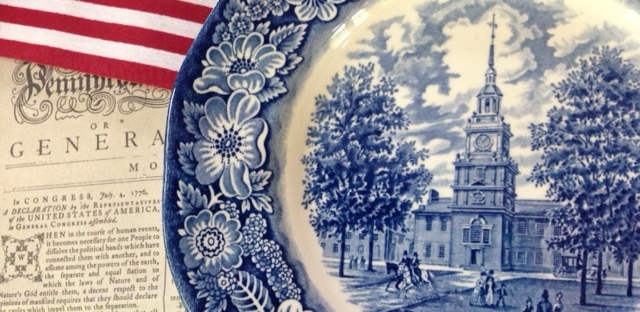Since this 4th of July marks the USA’s 240th birthday, here are 13 stories (in honor of the 13 colonies) that not only trace the American saga through time but also illustrate hard work, sacrifice, family and faith. After all, these traits are just as much a part of America’s story as the characters who lived them.
1. 1776 by David McCullough – I remember being surprisingly enthralled by 1776. While I love the illustrations and facsimiles tucked within the illustrated edition, it was the audio edition that made me a fan. David McCullough’s work is exceptional, not only because of his research but also his understandability.
2. The Midnight Ride of Paul Revere by Longfellow – A nation without its poems and ballads would be like a person without a heart and blood…or something like that. At any rate, The Midnight Ride of Paul Revere is one of the poems that captures the spirit of the War for Independence at its very start. Just make sure you read a strictly historical account of Paul Revere’s ride to get the whole story without the poetic license!
3. The Williamsburg Years by Nancy Rue – This series was the star of one of my posts in 2015. If you want to feel like you’ve stepped back in time onto the streets of Williamsburg when patriots walked, this series is for you!
4. Abigail Adams – Her Letters (Voices from the Past) by Abigail Adams – What better way to learn about the world during America’s birth than through the letters of one of her heroines? Abigail Adams’s letters bear testimony to the courage and struggles of American patriots during the nation’s early days. Reading is lovely, but if you don’t have time to read, try listening to this audio adaptation. By listening, I think you might have a little extra spark in your imagination to picture Abigail at her dusk, pen in hand, while the vibrations of bombs shake her study…and so much more!
5. “The American Revelation” (Parts I & II) by John Fornof – Here is another story for your ears. Perhaps many of us are in the same boat with Marvin Washington – ignorant about the contributions of African-Americans to the War for Independence. This compelling, two-part tale from Adventures in Odyssey takes Marvin – and you – on a journey back in time that will leave you with unforgettable knowledge.
6. Up from Slavery by Booker T. Washington – I read Up from Slavery in middle school (I think it was then!) when I did a report on Booker T. Washington. All these years later, I still think it’s an excellent way to learn about the life of an African-American post-Civil War, especially because Booker wrote it himself.
7. The Little House series by Laura Ingalls Wilder – America has never been all patriots or political movers. It is also pioneers. Pioneers like the Ingalls family who worked hard, enjoyed simple pleasures and loved well – valuable lessons for today’s Americans. As I’ve mentioned in another post, this series had a profound effect on my life, and I hope it will continue to be read and enjoyed for generations to come.
Stay tuned for Part 2! Until then, happy reading/listening, and – for all my American friends – may you have a Happy Independence Day!


